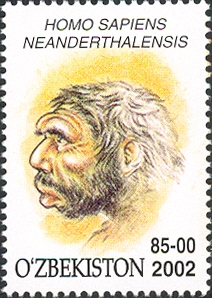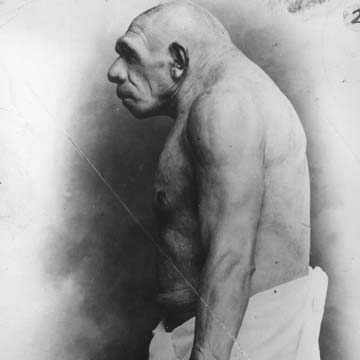The idiosyncratic geneticist Svante Pääbo, whose new book has just been published, has taught us much about our ancient roots, our ties to Neanderthals and Denisovans. From Robin McKie’s Guardian profile of Pääbo, a passage about the scientist’s research on the former:
“His results provided a shock for both researchers and the public. When he compared his newly created Neanderthal genome with those of modern humans, he found a small but significant overlap in many of them. About 2% of Neanderthal genes could be found in people of European, Asian and far eastern origin. People from Africa had no Neanderthal genes, however. ‘This was not a technical error of some sort,’ Pääbo insists. ‘Neanderthals had contributed DNA to people living today. It was amazingly cool. Neanderthals were not totally extinct.’
Most scientists, including Pääbo, now account for this result by arguing that modern humans – when they first emerged from Africa – encountered and mated with Neanderthals in the Middle East. Their offspring carried some Neanderthal genes and as modern humans swept through Asia and Europe they carried these genes with them.
 The revelation that many humans possess Neanderthal genes fascinated the public. Dozens of individuals have since written to Pääbo claiming to be full Neanderthals. Intriguingly, nearly all of them have been men. The only women who wrote did so to say they thought their husbands were Neanderthals. ‘I think that says a lot about our image of Neanderthals,’ says Pääbo.
The revelation that many humans possess Neanderthal genes fascinated the public. Dozens of individuals have since written to Pääbo claiming to be full Neanderthals. Intriguingly, nearly all of them have been men. The only women who wrote did so to say they thought their husbands were Neanderthals. ‘I think that says a lot about our image of Neanderthals,’ says Pääbo.
Just what that input of Neanderthal DNA has done for Homo sapiens’s evolution is less clear. Pääbo speculates that changes in sperm mobility and alterations in skin cell structure could be involved. In addition, US researchers have recently proposed that Neanderthals passed on gene variants that may have had a beneficial effects in the past but which have now left people prone to type 2 diabetes and Crohn’s disease. ‘This is work that is going to go on for years,’ he adds.”

